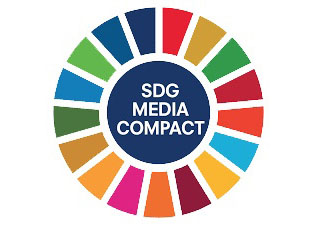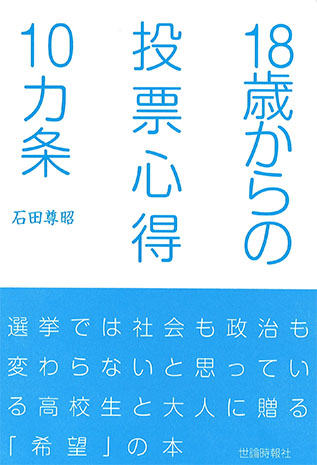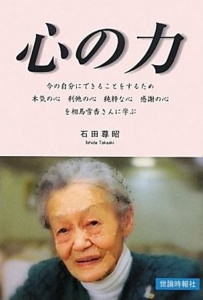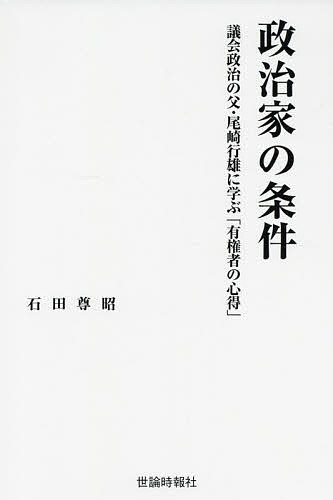By Monzurul Huq* | IDN-InDepth NewsAnalysis
NAGOYA, Japan (IDN) – The concept of global citizenship is one of the new ideas that the United Nations is actively promoting in recent years. In today’s interconnected world challenges we face need solutions based on new thinking transcending national boundaries and ideas whose outreach stretches beyond conventional understanding of identities based on nationality.
The conventional education systems are producing individuals who are able to read and write and thus are capable of coping with the realities of life within a narrow perspective. However, as the world today faces diverse challenges interconnected with elements and phenomenon of a much broader perception, the global community is in need of citizens capable of contributing more meaningfully in the process of resolving interconnected challenges of the 21st century. This is why the idea of fostering global citizenship has been recognized as one of the priorities of education for sustainable development.
UNESCO World Conference on Education for Sustainable Development (ESD) held in Nagoya, Japan, from November 10 to 12 had on its agenda a wide range of topics related to sustainability that policy makers, experts, stakeholders and civic group representatives from around the world discussed.
The focus of attention was to find new ways of promoting education that would help intensifying efforts for poverty eradication, environmental protection and economic growth beyond the timeframe of the United Nations Decade of Education for Sustainable Development that comes to an end this year.
There were also specific discussions on global citizenship as a means of achieving the ultimate goal of sustainable development. A workshop on global citizenship, eco-pedagogy and sustainable development was held on the second day of the conference, which was followed by a side event comprising a panel discussion on ESD and global citizenship education in the new era. Both the workshop and the panel discussion focused on emerging issues related to global citizenship, particularly on the necessity of defining the concept of global citizenship in a more meaningful way.
The concept of global citizenship is not a completely new idea. It has been on the agenda of social science discussions for quite some time. The two main speakers at the workshop were Carlos Alberto Torres, Director, Paolo Freire Institute of UCLA; and Miguel Silva, Global Education Manager of North-South Centre of the Council of Europe.
Carlos Torres, in his keynote presentation, focused on the need for global citizenship education for ensuring social justice in our interdependent world and identified three global commons that constitute the core of global citizenship:
– Our planet is our only home and we need to protect it.
– The idea of global peace is an intangible cultural good with immaterial value.
– People are all equal.
In short, this planet, peace and people constitute the global common that call for better understanding among nations. However, he also pointed out that, since economic citizenship cannot be accomplished without bare essentials, global citizenship would remain unattainable unless we multiply public sphere to ensure social justice. Removing ambiguities, thus, is the essential prerequisite of a theoretical framework for global citizenship education that would focus more on common good and common virtues like tolerance as a civic minimum.
Utopia “helps us at least to walk”
Weather this noble goal is achievable or not will depend much on what we do to transform our dream into reality. To some it might sound like a utopia, but Carlos Torres reminded the participants: “utopia is a horizon that we intend to reach. We take two steps forward, utopia moves two steps ahead . . . However, it helps us at least to walk.” Thus, the onward journey of humanity to global citizenship is also a journey forward, despite the realities of a deferred dream of our past.
Miguel Silva, on the other hand, focused on how global education can help develop strategies and capacity building for education for sustainable development leading to fostering global citizenship. Global education targeting institutions, practitioners and learners from formal and non-formal sector, according to Silva, is a school of holistic education dealing with the growing interconnection between local and global realities that can enable learners understand world issues while empowering them with knowledge, skill, values and attitudes desirable for world citizens to face various global problems.
Since it can help learners to understand the complexities of the world, be aware of contradictions and uncertainties, and to realize that there is no one-dimensional solution for complex problems. One of the critical issues, thus, according to Silva, “is to foster this multi-perceptivity and critical approach to the problems that we have to deal with, as this would help learners to understand cultural diversity of languages leading to the realization that mutual understanding can be achieved.”
To summarize, global education can comprehend and fosters empathy and intercultural skills in communication, while its methodology can create a learning environment based on dialogue, active listening and respect for other opinions and constructive assertiveness. According to Silva, global education, thus, promotes the principles of pluralism, non-discrimination and social justice, and creates the ground for global citizenship aware of global realities and working for a sustainable world based on dialogue and cooperation, while sharing common human, social and economic values.
The moderator of the workshop later asked participants to get involved in group discussions to share practical experiences for the advancement of education for sustainable development and also to identify challenges to the advancement of global citizenship. The outcome of workshop presentations and group discussions were later summarized and the concluding remarks of the chair outlined that democratic values should serve as guiding principles for educational theory and practice; and for improving quality education for fostering global citizenship what is essential is to make room for thoughtful dialogue and critical thinking.
The workshop was followed by a panel discussion on education for sustainable development and global citizenship education in the new era, where the panelists focused on various approaches to the notion of global citizenship and assessed the progress made so far in implementing the concept of education for sustainable development at the end of the UN decade.
Moderated by Shoko Yamada of Nagoya University, the panel discussion was a joint Japan-Korea academic initiative where two panelists each from Japan and South Korea participated in the discussions. The panelists focused more on ESD as they tried to link the two interconnected philosophical concept of sustainable development and global citizenship.
Relatively new
According to Professor Kazuhiro Yoshida of Hiroshima University, the idea of global citizenship and sustainable education has been in discussion for quite long, but the combined concept of global citizenship for education is relatively new. He also thinks it to be a new phenomenon to combine global citizenship education and education for sustainable development and feels the need to continue the endeavours that have been undertaken so far.
Commenting on the importance of global citizenship education within the context of education for sustainable development, Professor Yoshida said, “there has to be a natural choice in trying to find the areas of overlaps and to make sure the overlaps are nothing but to become a core of the fundamental message for future work of post 2015 education. I think, fortunately, ESD stands for fundamental foundation of the era of sustainable development goals. That’s why I mean that the definition or conceptualization of ESD has to be redone. It’s because so far we have been working within the boundary of education, how it should be interpreted and put into practice in your own community. But now it has to be done in a much broader context of development.”
Jinhee Kim of the (South) Korean Educational Development Institute thinks that education for sustainable development and global citizenship are in the same range of global education agenda. “Social justice and equity are key dimensions applicable to both the concepts. We can say that education is a foundation for a sustainable society with global citizenship. So, the mindset of global citizenship is that, we can change the world in a more equitable, more peaceful or in a more sustainable way,” she said. The most important thing in global citizenship education, according to her, is re-conception of the understanding of citizenship. Global citizens should be educated in a way to apply the concept at world level, or being citizens of the earth.
Not until long back, the concept of global citizenship was seen by some as a western idea being implemented around the world; and newly independent states had been a bit suspicious of the real motive of those involved in global citizenship campaign.
However, with the passage of time that misconception or reservation has gradually been eroding, paving the way for global citizenship education to be accepted and implemented widely across the developing world as well.
At Nagoya conference, 76 ministerial level representatives of UNESCO member states gathered along with more than 1,000 participants from 150 countries. Among Education Ministers heading their country representations was Nurul Islam Nahid from Bangladesh. Commenting on global citizenship education, Nahid said, “Along with focusing on problems transcending national boundaries like global warming in school textbooks, we’ve also introduced a new textbook for primary level education which has been named ‘Bangladesh and understanding the world’. This new textbook focuses on global issues in the context of historical, cultural and traditional aspects of our country. Fostering global citizens is important at a time when many of our citizens are spreading around the world as part of the global workforce.”
With the UN Decade of Education for Sustainable Development coming to an end, the concept of global citizenship capable of tackling global problems in a more meaningful way is no longer considered a utopian idea destined to remain a mere textbook concept. According to a participant, “Our interdependent world needs more of such citizens well prepared of tackling various issues to make the world a common abode of mankind in true sense. The Nagoya UNESCO World Conference on Education for Sustainable Development has taken one more step forward to turn the utopia into a goal not unachievable.”
*Monzurul Huq is a Bangladesh journalist, who has authored three books in Bengali on Japan and other subjects. He moved to Japan in 1994 after working at the United Nations Information Center in Dhaka and BBC World Service in London. He represents two leading national dailies of Bangladesh – Prothom Alo and the Daily Star – and contributes regularly to a number of other important publications in Bangladesh. He has written extensively both in English and Bengali on matters related to Japan and East Asia. He is also a visiting professor at the Tokyo University of Foreign Studies, Yokohama National University and Keisen University, teaching subjects related to Japanese politics, Japanese media, the developing world and world affairs. He also works as a radio broadcaster for NHK. A member of the Foreign Correspondents’ Club of Japan since 2000, he has served at the Board of Directors of the Club for two consecutive terms before being elected president of the Club. [IDN-InDepthNews – November 14, 2014]
Top Photo: Group photo at the UNESCO World Conference on Education for Sustainable Development (ESD) in Aichi-Nagoya, Japan. Photo Credit: UNESCO














